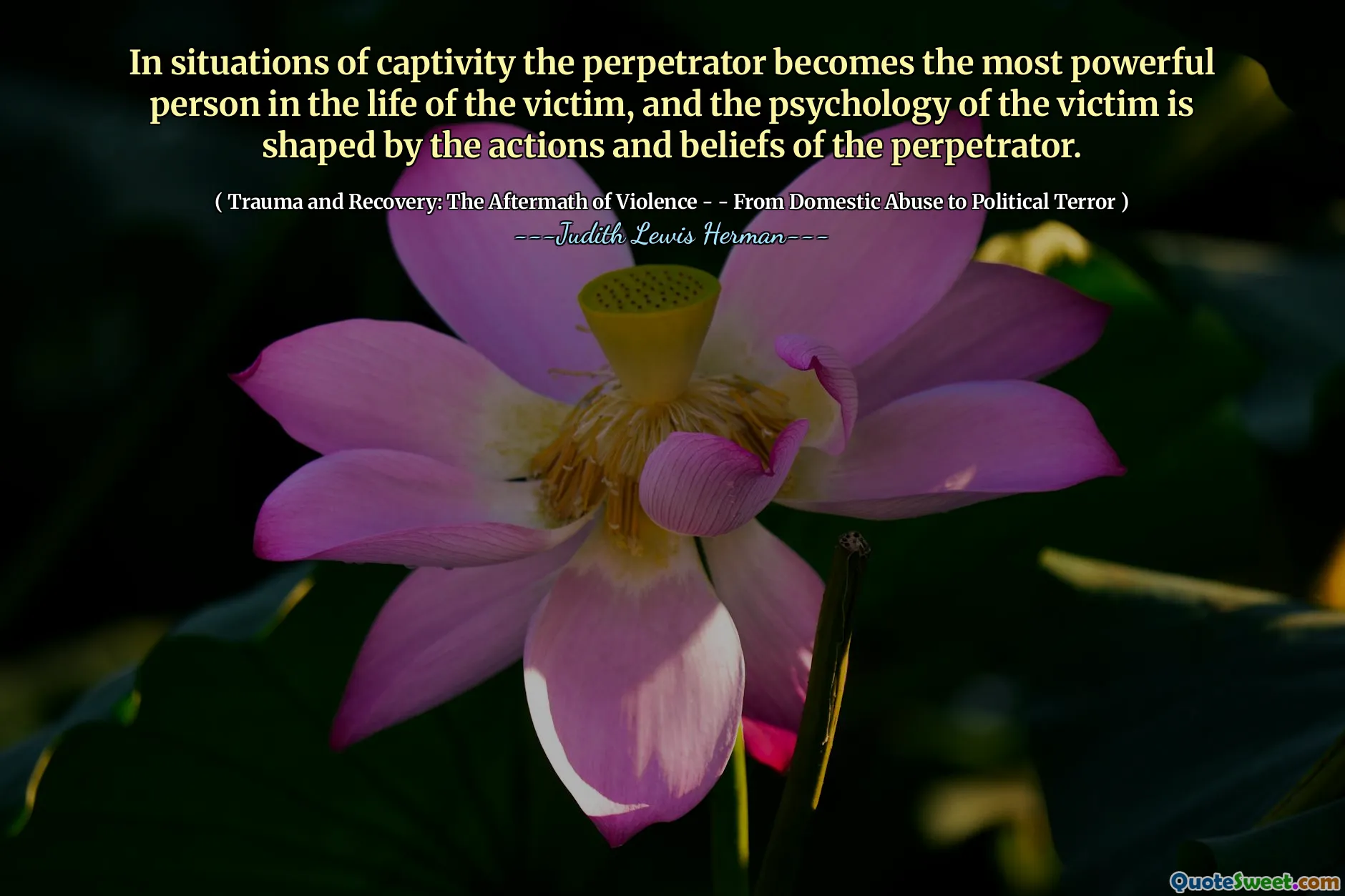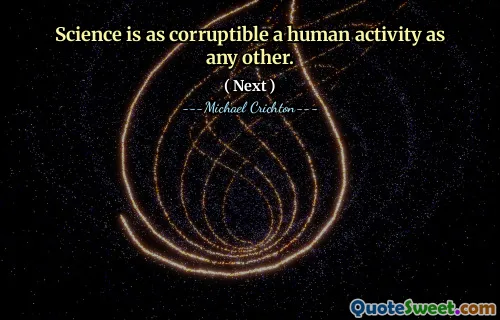
In situations of captivity the perpetrator becomes the most powerful person in the life of the victim, and the psychology of the victim is shaped by the actions and beliefs of the perpetrator.
This quote highlights a profound and often overlooked reality of abusive and oppressive relationships or situations of captivity. When someone is imprisoned physically, emotionally, or psychologically, the dynamics of power shift dramatically. The perpetrator, whether physically restraining or emotionally manipulating, holds the key to the victim’s experience, often dictating their environment, beliefs, and perceptions. The victim’s sense of agency diminishes, and their identity and worldview become intertwined with the actions and beliefs imposed upon them. Over time, this power imbalance can lead to psychological phenomena such as learned helplessness, where the victim perceives no control over their circumstances and adapts to their environment as if submission is the only option. The process often results in internalized guilt, shame, or acceptance of their vulnerability, which can persist long after the actual circumstances have changed or unless actively addressed through therapeutic intervention. Recognizing the long-term effects of this dynamic is critical in understanding trauma recovery, as it requires not just physical liberation, but also a reconstruction of the victim’s sense of self, autonomy, and trust. The psychology of captivity or abuse challenges fundamental notions of free will and personal choice, illustrating how environments of dominance and control can fundamentally alter an individual’s psyche and perceptions of reality. Ultimately, this quote emphasizes the importance of awareness, empathy, and systemic effort to restore power and agency to those who have been manipulated or oppressed.


